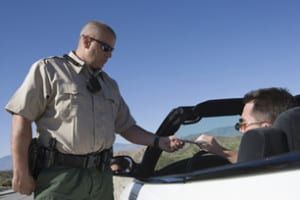 You’ve been pulled over while driving home after having dinner and a drink with friends. The police officer wants to ask you a few simple questions. You wait for it: “You have the right to remain silent. Anything you say can, and will, be used against you…” But it never comes. Instead, the officer immediately starts asking if you’ve been drinking and how much. Is this legal?
You’ve been pulled over while driving home after having dinner and a drink with friends. The police officer wants to ask you a few simple questions. You wait for it: “You have the right to remain silent. Anything you say can, and will, be used against you…” But it never comes. Instead, the officer immediately starts asking if you’ve been drinking and how much. Is this legal?
While it might just sound like a cliche you’ve heard one too many times on your favorite crime drama, the Miranda Rights are a very real, and very important, part of the U.S. criminal justice system.
But what about when you get pulled over on suspicion of driving under the influence and the officer starts questioning you…sans your Miranda Rights? Is it legal?
You bet. A police officer is only required to inform you of your “right to remain silent,” so on and so forth, if two conditions are met:
-
You are under arrest.
-
You are being interrogated (not just being asked simple investigative questions.)
While it makes sense, considering that a police officer can’t arrest or interrogate someone for drinking and diving unless simple questioning, a breathalyzer or blood test, or a combination of these things provides probable cause, officers might use this loophole to get you to say something incriminating, undermining our Fifth Amendment right to remain free from self-incrimination. Even if you haven’t had a drop of alcohol.
So if you ever find yourself getting pulled over on suspicion of driving under the influence, especially if you are innocent, politely refuse to answer any of the officer’s questions, as anything you say can incriminate you, be documented, and be held against you later on in court.
If you have been drinking, your best bet is to avoid getting behind the wheel in the first place.
